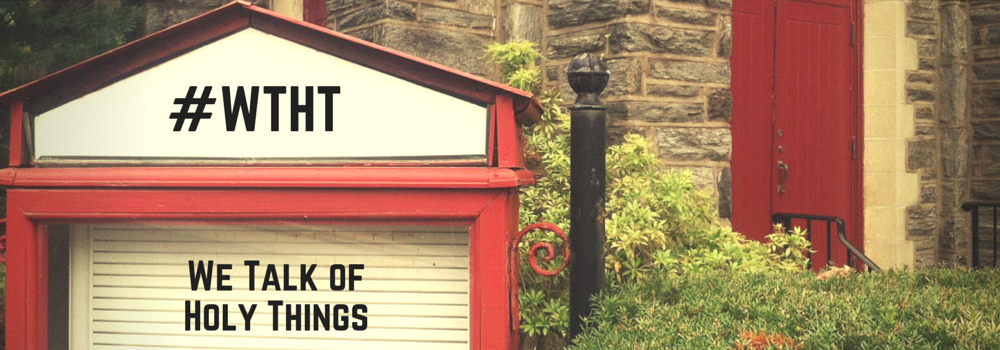The Book
 The Future of Evangelicalism in America
The Future of Evangelicalism in AmericaEdited by: Candy Gunther Brown & Mark Silk
This book was slapped on my desk by a colleague who knows and shares my interest in all things Christian. He told me it was a good, interesting read. And it most certainly was. I saw expressed in these pages many of the things that I had worked out in my own struggle as a young evangelical (quickly becoming or, perhaps, already become a middle-aged evangelical). These struggles have to do with the fact that I both agreed and disagreed with a lot of the stereotypical stances of evangelicalism. In fact, you can read another book review on a similar topic in the aptly titled: Everything You Know About Evangelicals is Wrong plus one on a book referred to in this title: Karl Barth's Evangelical Theology.
I knew that this book would likely be a scholarly work given the one who recommended it. I was not incorrect.
The Review
The tone of this work is scholarly. It is infused with statistics throughout. Particularly, the final chapter on racial diversity in evangelical churches at times reads like a textbook. (Though, thankfully, the author finds a narrative once he plows through the data.) It is not a book for the faint of heart or mind. In addition to race relations, the essays tackled in this books cover topics like: music, divisions, and politics.An interesting note is how the authors envision the future. Since each chapter is contributed by a different author on a different topic, there is no consensus on the future of evangelicalism. Some say the future looks bright, some say the collapse of evangelicalism appears imminent. Most fall somewhere in between skewing to one side or another. The final chapter serves as a guide of things to consider moving forward. These things include:
- Biblicism - How will evangelicals define biblicism moving forward?
- Nondenominationalism - Will the nondenominational denominations continue becoming institutionalized?
- Magnetic Leadership - Who is the next charismatic leader?
- Popular Culture - How will evangelicals assimilate and integrate popular culture into their moral code?
- Pentecostalization - Will evangelicalism become overrun by the Pentecostal trends?
- Globalization - Will the center of evangelicalism shift into Latin America?
- Racial and Ethnic Diversification - How will the continued growth of nonwhites effect evangelicalism?
- Political Realignment - As evangelicals detach from traditional political "allies," where will they turn as they exercise their voting rights?
- Generational Change - As we get further from the roots of evangelicalism, what will the next generations do with their heritage?
Evangelical Ethos
It is important to understand how the authors define evangelicalsim. Rather than a readily apparent set of beliefs with clearly divisive properties (i.e. Calvinism, Roman Catholicism, Arminianism, etc.) the authors follow Mark Knoll and David Bebbington in describing an Evangelical Ethos based on biblicism, conversionism, crusicentrism and activism. These points actually work to unite Christians across denominational boundaries. This method helps explain why we have the existence of self-described evangelicals all over Christendom without there being one Evangelical denomination. Yes, you have Methodist Evangelicals and Catholic Evangelicals and Presbyterian Evangelicals and they can all work together for a parachurch organization like Youth For Christ (which figures prominently in the book) and agree with the teachings of Billy Graham.These four points are explained as follows:
- Biblicism: The belief that the Bible is central to Christianity. Look to the Bible for the answer. While there is debate on whether the Bible is inerrant vs infallable, and there is debate on the role of Tradition and the Magisterium, the Bible settles all disputes in the end.
- Conversionism: A personal relationship and regeneration. You have to have some kind of experience with God. There has to be a moment when you were converted. The story of your personal decision to follow Christ must be a prominent feature in your life-narrative. Without this, you might not be a Christian at all.
- Crucicentrism: A focus and emphasis on Christ's atoning death. The Church, the Bible and all of God's efforts in this world find their culmination at the cross of Calvary. Without an emphasis on Jesus Christ, you have no Christianity.
- Activism: Evangelistic activity aimed at conversion, renewal and activism. Your faith must be lived out, your faith requires some kind of action. In most cases, this means sharing the Gospel with neighbors, friends, and colleagues. However, this may also mean social activism, like feeding the hungry and clothing the poor.
The Conclusion
I really liked the layout of this book. It was nice to hear from different voices about the changing face of evangelicalism. More than that, I liked to see how some of my own thoughts on the subject were reaffirmed. I know I didn't go into detail on that in this review, you just have to read the book to get that information.That being said, I would not recommend this book to everyone. At the end of the day, it reads more like a scholarly work so if that's the kind of piece you enjoy reading, go ahead and pick it up. You will not be disappointed. For a similar book that treats the topic in a more informal manner, I recommend the book mentioned earlier: Everything You Know About Evangelicals is Wrong.

